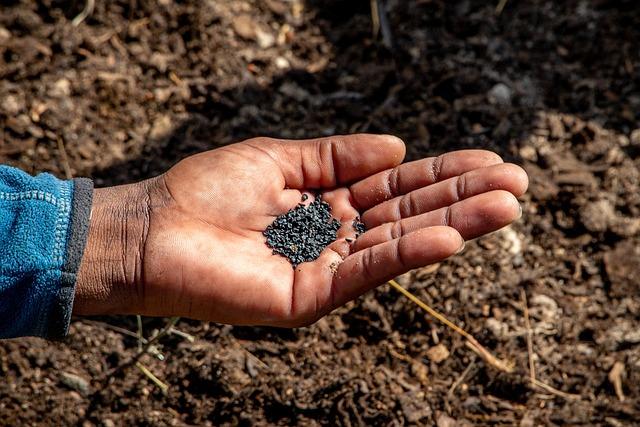In a meaningful move aimed at advancing sustainable growth initiatives within Togo, the United Nations Secretary-General has appointed Coumba D. Sow of Senegal as the new United Nations Resident Coordinator in the West African nation.With a robust background in international development and a commitment to fostering collaboration among various stakeholders, Sow’s appointment signals the UN’s continued dedication to addressing the unique challenges facing Togo.As she steps into this pivotal role, her leadership is expected to enhance the UN’s efforts in supporting the national agenda for sustainable growth, fostering resilience, and achieving the Sustainable Development Goals (SDGs) in a country richly endowed with resources yet grappling with various socio-economic hurdles. This article delves into Sow’s qualifications, the priorities of her new position, and the broader implications for development in Togo.
Appointment of Coumba D. Sow: A New Era for UN Representation in Togo
The appointment of Coumba D.Sow marks a significant transition in the United Nations’ engagement in Togo, as she steps into her role as the Resident Coordinator. With extensive experience in sustainable development, Sow brings a wealth of knowledge to the position, fostering collaboration across various sectors and stakeholders. Her previous roles have equipped her with a strong understanding of the socio-economic challenges facing the region, positioning her as an ideal leader to drive forward the UN’s agenda in Togo.
As the new Resident Coordinator, D. Sow’s priorities will focus on:
- Enhancing multi-stakeholder partnerships to accelerate progress towards the Sustainable Development Goals (SDGs).
- Strengthening local capacities and community engagement in development initiatives.
- Promoting gender equality and empowering marginalized groups.
- Advocating for environmental sustainability and climate resilience in policy frameworks.
Through her strategic vision and commitment,Coumba D. Sow is poised to usher in a new chapter for UN representation in Togo, working closely with government officials, civil society, and the private sector to ensure that Togo remains on a path towards sustainable progress and inclusivity.

Profile of Coumba D. Sow: Experience and Vision for Sustainable Development
Combining a wealth of experience in international development with a keen focus on sustainable growth, Coumba D. Sow has been appointed as the United Nations Resident coordinator in Togo. With a career spanning over two decades, Sow has worked in a variety of roles within the UN system, specializing in areas such as poverty reduction, food security, and climate change adaptation. her extensive tenure in different countries has equipped her with a profound understanding of the unique challenges faced by local communities.The diverse skills she possesses are complemented by her robust educational background, which includes advanced degrees in International relations and Development Studies.
As she takes on this pivotal role, Sow brings with her a clear vision rooted in collaborative efforts and community engagement. Her strategic priorities include:
- Empowerment of local stakeholders: Ensuring that the voices of those directly affected by development initiatives are heard and integrated into decision-making processes.
- Innovative partnerships: collaborating with government entities, NGOs, and the private sector to drive impactful projects that address both immediate needs and long-term development goals.
- Environmental sustainability: Advocating for practices that protect natural resources and promote resilience against climate change, especially in vulnerable regions.
With coumba D. Sow at the helm, the UN’s mission in Togo is set to align with the global agenda for sustainable development, aiming to deliver measurable progress in economic growth, social equity, and environmental stewardship.

strategic Goals for the United Nations in Togo Under Sow’s Leadership
Under Coumba D. Sow’s leadership, the United nations is set to enhance its strategic objectives in Togo, focusing on fostering sustainable development that addresses both immediate needs and long-term aspirations. The main goals include:
- Strengthening Local Governance: Collaborating with the government and civil society to promote transparency, accountability, and active citizen engagement.
- Promoting Women’s Empowerment: Implementing programs that support gender equality and enhance the socio-economic status of women across various sectors.
- Enhancing Education and Employment Opportunities: Focusing on improving access to quality education and creating job opportunities for youth.
- Climate Resilience: Developing initiatives to combat the effects of climate change while promoting sustainable practices among communities.
To effectively execute these strategic goals, Sow aims to foster partnerships with local stakeholders and international organizations. A collaborative framework will be established to ensure that resources are efficiently allocated and monitored. Key performance indicators will be employed to track progress and adaptability to changing circumstances, including:
| Indicator | Target | Timeline |
|---|---|---|
| Increase in Local Governance Participation | 30% | 2025 |
| Women in Leadership Positions | 40% | 2024 |
| Youth Employment Rate | 15% Increase | 2026 |
| Community Climate Programs | 50 Initiatives | 2025 |

Challenges and Opportunities for Sustainable Development in Togo
The appointment of Coumba D. Sow as the united Nations Resident Coordinator in Togo brings a fresh perspective on the pressing issues facing the nation,especially regarding sustainable development. As Togo strives to achieve the sustainable Development Goals (SDGs), it encounters various challenges, including limited access to basic services, environmental degradation, and socio-economic disparities. Addressing these challenges necessitates collaborative efforts among government bodies, NGOs, and international partners to create a complete framework for sustainable initiatives.Some of the key obstacles include:
- Infrastructure Deficits: Poor transportation and energy infrastructure hinder economic growth and limit access to services.
- Climate Vulnerability: Togo is susceptible to climate change impacts, affecting agriculture, which is vital for food security.
- Gender Inequality: Women often face barriers to education and economic participation, stifling social development.
Though, with challenges arise significant opportunities for revitalizing Togo’s approach to sustainable development. The strategic leadership of the UN and Coumba D.Sow can facilitate partnerships that empower local communities and promote innovative solutions. As an example, integrating renewable energy sources not only addresses energy poverty but also lays the groundwork for a sustainable economy.Potential opportunities include:
- investment in Renewable Energy: Harnessing solar and wind resources can reduce dependency on fossil fuels.
- Community-Based agriculture: Supporting smallholder farmers through training and access to markets can enhance food security and promote sustainable practices.
- Digital Innovation: Utilizing technology to improve service delivery can transform sectors such as health and education.
| Opportunities | Description |
|---|---|
| Renewable Energy Investments | Leverage Togo’s solar potential to power rural communities. |
| Empowering Women | Initiatives to enhance women’s participation in development projects. |
| Improving Infrastructure | Developing transport networks to facilitate trade and mobility. |

Collaborative Efforts with Local Governments and NGOs for Progress
In her role as United Nations Resident Coordinator in Togo, Coumba D.Sow will play a pivotal part in fostering collaborative partnerships with local governments and non-governmental organizations (NGOs) to drive sustainable development initiatives. By leveraging the strengths and resources of these entities, ms. Sow aims to create an integrated approach that addresses local challenges effectively. Focusing on areas such as education, healthcare, and environmental sustainability, these partnerships are designed to enhance the well-being of communities and promote inclusive economic growth.
To facilitate these collaborative efforts, several key strategies will be employed:
- Joint Planning Sessions: Organizing workshops to align the objectives of local governments and NGOs with international sustainable development goals.
- Resource sharing: Fostering an environment where expertise, tools, and funding are allocated effectively to maximize impact.
- Community Engagement: Involving local populations in decision-making processes to ensure that initiatives address their unique needs.
| Strategy | Description |
|---|---|
| Joint Planning Sessions | Aligning goals through collaborative workshops. |
| Resource Sharing | Maximizing impact through effective allocation of resources. |
| Community Engagement | Empowering locals in decision-making and initiative design. |

Recommendations for Maximizing Impact of the UN Sustainable Development group in Togo
To enhance the effectiveness of the United Nations Sustainable Development Group in Togo, it is essential to focus on collaborative partnerships that amplify local engagement. Implementing a platform for dialog among government agencies, civil society organizations, and private sector stakeholders can foster greater alignment of goals and mobilize substantial resources. This collaborative effort should prioritize the following strategies:
- Community Involvement: Engage local communities in decision-making processes to ensure that development projects meet their needs and aspirations.
- Capacity Building: Invest in training programs to empower local leaders, enhancing their ability to implement sustainable projects effectively.
- Data-Driven Approaches: Utilize robust data collection and analysis to monitor progress and adapt strategies based on emerging challenges and opportunities.
Moreover, establishing clear dialogue channels and promoting transparency will be crucial in fostering trust and cooperation among all stakeholders. By focusing on a holistic approach that integrates economic, social, and environmental dimensions, the UN Sustainable development Group can create a ripple effect that extends beyond Togo’s borders. Key initiatives should include:
| Initiative | Expected Outcome |
|---|---|
| Joint Development Programs | Enhanced resource efficiency and impact |
| Public Awareness Campaigns | Increased community engagement and support |
| Annual Review Forums | Improved accountability and governance |

Wrapping Up
the appointment of Coumba D.Sow as the United Nations Resident Coordinator in togo marks a significant step towards bolstering the UN’s commitment to sustainable development in the region. With her extensive experience and a robust track record in international development,Sow is poised to lead collaborative efforts in addressing the pressing challenges faced by Togo. Her role will be pivotal in ensuring that the UN’s Sustainable Development Goals are met, fostering partnerships, and enhancing support for government initiatives aimed at improving the lives of Togolese citizens. As she takes on her new responsibilities, the international community will be watching closely to see how her leadership contributes to a more sustainable and equitable future for Togo.







